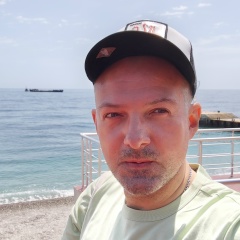1 августа в проекте-2015 обсуждали новые антироссийские санкции. Какие они будут иметь последствия для России? Чего ожидать?
В отличие от предыдущих, эти санкции имеют, я бы сказала, трехмерный характер. То есть ударят сразу по трем направлениям. Во-первых, по России. Во-вторых, по Европе. И в-третьих, что самое интересное, по президенту США.
В отличие от Обамы или Хиллари Клинтон, Трамп является внесистемным лидером. Несмотря на то, что его избрали на демократических выборах, для американской политики он – фигура неугодная. Вообще это новая мода – внесистемные и беспартийные деятели. Не только в США, но и во всем западном мире. Сформированная еще после войны политическая система уже давно утратила доверие среди населения. Поэтому сказать «я не с ними» - означает автоматически заручиться поддержкой доброй части электората. В Италии, к примеру, популярность набирает демагог Беппе Грилло, который проводит свою пропаганду исключительно в интернете и принципиально не сотрудничает с коррумпированными СМИ. А поскольку все масс-медиа, на его взгляд, находятся на службе у правительства, он вообще не сотрудничает со СМИ. Общается с избирателями через Твиттер и Фейсбук.
Что касается Трампа, то он лидер недемократический: откровенный шовинист, бабник, типичный «белый расист», не любит иммигрантов и геев. Разумеется, в рамках либерального дискурса, он – белая ворона и бельмо на глазу. А в самой Америке, тем более. Там дискурс не то, что либеральный, а ультралиберальный.
Да и сам Трамп еще во время президентской кампании всячески старался дистанцироваться от правящих элит.
Однако, будучи избранным, он становится заложником той самой системы, с которой «еще вчера» боролся. Да и силы тут неравные. Он один (хоть и номинально главный), а конгрессменов много. В самом законопроекте оговаривается условие, согласно которому президент самостоятельно не имеет права снимать антироссийские санкции, без одобрения большинства членов Конгресса. То есть, подписав закон, президент самостоятельно связывает себе руки. Поэтому новый пакет санкций – это, в частности, и результат внутриполитических разборок, который, конечно, больно ударит и по нам. Тем более, что новые санкции затронут российскую «ахиллесову пяту» - рынок углеводородов и крупные энергетические проекты.
Но что интересно. В связи с принятием нового закона, мы наблюдаем не только начало нового этапа конфронтации между США и Россией, но и наметившуюся конфронтацию между США и Европой.
Дело в том, что новые санкции имеют экстерриториальный характер. То есть действуют не только на территории США и в отношении России, но и на территории Европы. А это уже нарушение суверенитета и угроза энергетической безопасности Европы. Законом предусматривается возможность штрафовать европейские кампании, желающие наладить экономическое сотрудничество с Россией. Этот пункт вызывает беспокойство многих европейских лидеров, которые теперь хватаются за голову, называют закон «нарушением международного права» и подумывают о выработке ответных мер, призванных противостоять действию американского закона на территории ЕС.
«Энергетический» характер санкций, конечно, возник не на ровном месте. За новыми санкциями «стоят» не только проблемы Украины, Сирии и Крыма, о чем говорится официально, но и сугубо экономические интересы США. Дело в том, что в последние годы, в связи с появлением сланцевых нефти и газа, изменилась роль США на рынке углеводородов. Теперь США не только страна-импортер, но и крупнейший экспортер горючего топлива. А следовательно, Штаты готовы конкурировать с Россией и арабскими странами за европейские рынки. То есть, грубо говоря, европейцам хотят навязать покупку сланцевых энергоносителей.
Что ожидать от санкций нам – время покажет. Но, боюсь, мы снова попадаем в «нефтяной капкан» 80-х, когда от цен на углеводороды без преувеличения зависело не только качество жизни народа, но и судьба государства. Поэтому падение рубля, инфляция, спад покупательной способности – наши верные спутники на ближайшие годы. #проект2015, #санкции
В отличие от предыдущих, эти санкции имеют, я бы сказала, трехмерный характер. То есть ударят сразу по трем направлениям. Во-первых, по России. Во-вторых, по Европе. И в-третьих, что самое интересное, по президенту США.
В отличие от Обамы или Хиллари Клинтон, Трамп является внесистемным лидером. Несмотря на то, что его избрали на демократических выборах, для американской политики он – фигура неугодная. Вообще это новая мода – внесистемные и беспартийные деятели. Не только в США, но и во всем западном мире. Сформированная еще после войны политическая система уже давно утратила доверие среди населения. Поэтому сказать «я не с ними» - означает автоматически заручиться поддержкой доброй части электората. В Италии, к примеру, популярность набирает демагог Беппе Грилло, который проводит свою пропаганду исключительно в интернете и принципиально не сотрудничает с коррумпированными СМИ. А поскольку все масс-медиа, на его взгляд, находятся на службе у правительства, он вообще не сотрудничает со СМИ. Общается с избирателями через Твиттер и Фейсбук.
Что касается Трампа, то он лидер недемократический: откровенный шовинист, бабник, типичный «белый расист», не любит иммигрантов и геев. Разумеется, в рамках либерального дискурса, он – белая ворона и бельмо на глазу. А в самой Америке, тем более. Там дискурс не то, что либеральный, а ультралиберальный.
Да и сам Трамп еще во время президентской кампании всячески старался дистанцироваться от правящих элит.
Однако, будучи избранным, он становится заложником той самой системы, с которой «еще вчера» боролся. Да и силы тут неравные. Он один (хоть и номинально главный), а конгрессменов много. В самом законопроекте оговаривается условие, согласно которому президент самостоятельно не имеет права снимать антироссийские санкции, без одобрения большинства членов Конгресса. То есть, подписав закон, президент самостоятельно связывает себе руки. Поэтому новый пакет санкций – это, в частности, и результат внутриполитических разборок, который, конечно, больно ударит и по нам. Тем более, что новые санкции затронут российскую «ахиллесову пяту» - рынок углеводородов и крупные энергетические проекты.
Но что интересно. В связи с принятием нового закона, мы наблюдаем не только начало нового этапа конфронтации между США и Россией, но и наметившуюся конфронтацию между США и Европой.
Дело в том, что новые санкции имеют экстерриториальный характер. То есть действуют не только на территории США и в отношении России, но и на территории Европы. А это уже нарушение суверенитета и угроза энергетической безопасности Европы. Законом предусматривается возможность штрафовать европейские кампании, желающие наладить экономическое сотрудничество с Россией. Этот пункт вызывает беспокойство многих европейских лидеров, которые теперь хватаются за голову, называют закон «нарушением международного права» и подумывают о выработке ответных мер, призванных противостоять действию американского закона на территории ЕС.
«Энергетический» характер санкций, конечно, возник не на ровном месте. За новыми санкциями «стоят» не только проблемы Украины, Сирии и Крыма, о чем говорится официально, но и сугубо экономические интересы США. Дело в том, что в последние годы, в связи с появлением сланцевых нефти и газа, изменилась роль США на рынке углеводородов. Теперь США не только страна-импортер, но и крупнейший экспортер горючего топлива. А следовательно, Штаты готовы конкурировать с Россией и арабскими странами за европейские рынки. То есть, грубо говоря, европейцам хотят навязать покупку сланцевых энергоносителей.
Что ожидать от санкций нам – время покажет. Но, боюсь, мы снова попадаем в «нефтяной капкан» 80-х, когда от цен на углеводороды без преувеличения зависело не только качество жизни народа, но и судьба государства. Поэтому падение рубля, инфляция, спад покупательной способности – наши верные спутники на ближайшие годы. #проект2015, #санкции
On August 1, in the 2015 draft, new anti-Russian sanctions were discussed. What consequences will they have for Russia? What to expect?
Unlike previous ones, these sanctions are, I would say, three-dimensional in nature. That is, they will hit at once in three directions. First, in Russia. Secondly, in Europe. And thirdly, what is most interesting, according to the President of the United States.
Unlike Obama or Hillary Clinton, Trump is a non-systemic leader. Despite the fact that he was elected in a democratic election, for American politics he is a disagreeable figure. In general, this is a new fashion - non-systemic and non-partisan figures. Not only in the USA, but in the whole western world. The political system that was formed after the war has long lost confidence among the population. Therefore, to say “I am not with them” means automatically to enlist the support of a good part of the electorate. In Italy, for example, the demagogue Beppe Grillo, who conducts his propaganda exclusively on the Internet and does not cooperate in principle with the corrupt media, is gaining popularity. And since all the media, in his opinion, are in the service of the government, he does not cooperate with the media at all. Communicates with voters via Twitter and Facebook.
As for Trump, he is a non-democratic leader: a frank chauvinist, a womanizer, a typical “white racist”, does not like immigrants and gays. Of course, in the framework of the liberal discourse, he is the white crow and eyesore. And in America itself, even more so. There the discourse is not that liberal, but ultraliberal.
And even during the presidential campaign, Trump himself tried his best to distance himself from the ruling elites.
However, being elected, he becomes a hostage of the very system with which he “fought yesterday”. And the forces here are unequal. He is one (albeit nominally main), and there are many congressmen. The bill itself stipulates a condition according to which the president himself does not have the right to remove anti-Russian sanctions, without the approval of the majority of members of Congress. That is, by signing the law, the president independently binds his hands. Therefore, a new package of sanctions is, in particular, the result of internal political clashes, which, of course, will also hurt us. Moreover, the new sanctions will affect the Russian “Achilles' heel” - the hydrocarbon market and large energy projects.
But what is interesting. In connection with the adoption of the new law, we are witnessing not only the beginning of a new stage of confrontation between the US and Russia, but also the outlined confrontation between the US and Europe.
The fact is that the new sanctions are extraterritorial in nature. That is, they act not only in the United States and in relation to Russia, but also in Europe. And this is a violation of sovereignty and a threat to the energy security of Europe. The law provides for the possibility to fine European campaigns wishing to establish economic cooperation with Russia. This item is a matter of concern for many European leaders, who are now clutching their heads, calling the law a “violation of international law” and are considering developing countermeasures designed to counter American law in the EU.
The “energy” nature of the sanctions, of course, did not arise out of the blue. For the new sanctions "stand" not only the problems of Ukraine, Syria and the Crimea, as stated officially, but also purely economic interests of the United States. The fact is that in recent years, due to the emergence of shale oil and gas, the role of the United States in the hydrocarbon market has changed. Now the United States is not only the importing country, but also the largest exporter of combustible fuel. Consequently, the States are ready to compete with Russia and Arab countries for European markets. That is, roughly speaking, the Europeans want to impose the purchase of shale energy.
What to expect from the sanctions to us - time will tell. But, I am afraid, we again fall into the “oil trap” of the 80s, when not only the quality of life of the people, but also the fate of the state depended on the price of hydrocarbons without exaggeration. Therefore, the fall of the ruble, inflation, the decline in purchasing power are our faithful companions for the coming years. # project 2015, # sanctions
Unlike previous ones, these sanctions are, I would say, three-dimensional in nature. That is, they will hit at once in three directions. First, in Russia. Secondly, in Europe. And thirdly, what is most interesting, according to the President of the United States.
Unlike Obama or Hillary Clinton, Trump is a non-systemic leader. Despite the fact that he was elected in a democratic election, for American politics he is a disagreeable figure. In general, this is a new fashion - non-systemic and non-partisan figures. Not only in the USA, but in the whole western world. The political system that was formed after the war has long lost confidence among the population. Therefore, to say “I am not with them” means automatically to enlist the support of a good part of the electorate. In Italy, for example, the demagogue Beppe Grillo, who conducts his propaganda exclusively on the Internet and does not cooperate in principle with the corrupt media, is gaining popularity. And since all the media, in his opinion, are in the service of the government, he does not cooperate with the media at all. Communicates with voters via Twitter and Facebook.
As for Trump, he is a non-democratic leader: a frank chauvinist, a womanizer, a typical “white racist”, does not like immigrants and gays. Of course, in the framework of the liberal discourse, he is the white crow and eyesore. And in America itself, even more so. There the discourse is not that liberal, but ultraliberal.
And even during the presidential campaign, Trump himself tried his best to distance himself from the ruling elites.
However, being elected, he becomes a hostage of the very system with which he “fought yesterday”. And the forces here are unequal. He is one (albeit nominally main), and there are many congressmen. The bill itself stipulates a condition according to which the president himself does not have the right to remove anti-Russian sanctions, without the approval of the majority of members of Congress. That is, by signing the law, the president independently binds his hands. Therefore, a new package of sanctions is, in particular, the result of internal political clashes, which, of course, will also hurt us. Moreover, the new sanctions will affect the Russian “Achilles' heel” - the hydrocarbon market and large energy projects.
But what is interesting. In connection with the adoption of the new law, we are witnessing not only the beginning of a new stage of confrontation between the US and Russia, but also the outlined confrontation between the US and Europe.
The fact is that the new sanctions are extraterritorial in nature. That is, they act not only in the United States and in relation to Russia, but also in Europe. And this is a violation of sovereignty and a threat to the energy security of Europe. The law provides for the possibility to fine European campaigns wishing to establish economic cooperation with Russia. This item is a matter of concern for many European leaders, who are now clutching their heads, calling the law a “violation of international law” and are considering developing countermeasures designed to counter American law in the EU.
The “energy” nature of the sanctions, of course, did not arise out of the blue. For the new sanctions "stand" not only the problems of Ukraine, Syria and the Crimea, as stated officially, but also purely economic interests of the United States. The fact is that in recent years, due to the emergence of shale oil and gas, the role of the United States in the hydrocarbon market has changed. Now the United States is not only the importing country, but also the largest exporter of combustible fuel. Consequently, the States are ready to compete with Russia and Arab countries for European markets. That is, roughly speaking, the Europeans want to impose the purchase of shale energy.
What to expect from the sanctions to us - time will tell. But, I am afraid, we again fall into the “oil trap” of the 80s, when not only the quality of life of the people, but also the fate of the state depended on the price of hydrocarbons without exaggeration. Therefore, the fall of the ruble, inflation, the decline in purchasing power are our faithful companions for the coming years. # project 2015, # sanctions


У записи 22 лайков,
1 репостов,
1349 просмотров.
1 репостов,
1349 просмотров.
Эту запись оставил(а) на своей стене Саша Махова











































